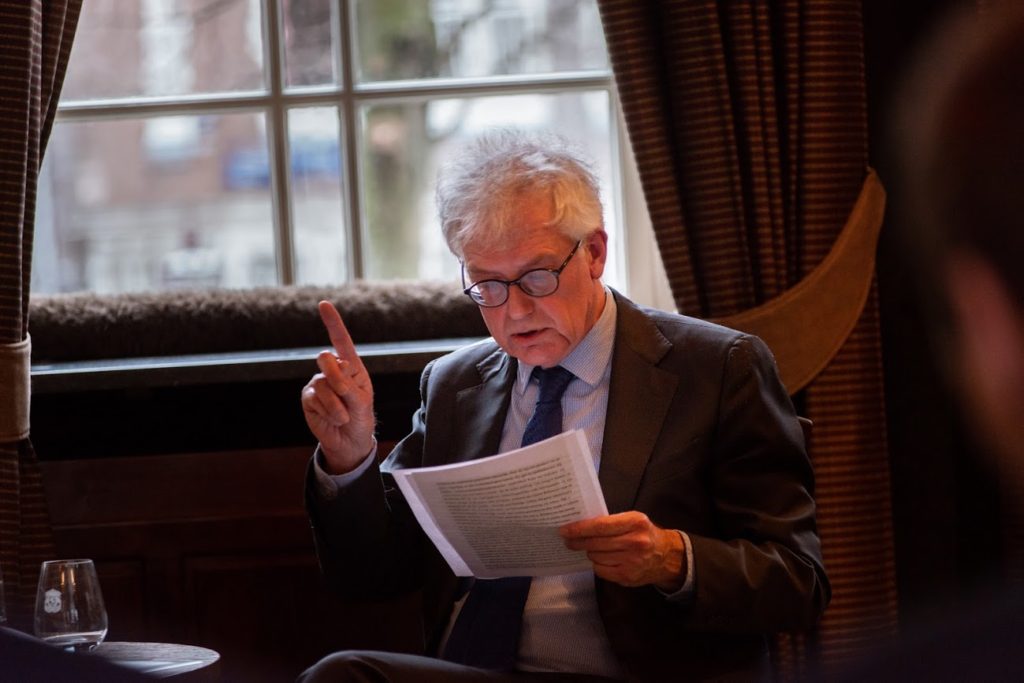Saturday February 22nd we held our Winter Meeting in Amsterdam. Our guest was Martin Sommer, columnist for newspaper De Volkskrant and author of De Kleine Tocqueville (The Pocket Tocqueville). Centered on the CSS theme of freedom, we discussed the well-being of Dutch democracy. Does our current political order leave enough room for fundamental debate about values?
Scroll down for a report of what has been discussed!
What did we discuss?
For decades, our democracy has been “moved”: from the front (elections, ideological struggles, the exercise of “popular will”) to the back (procedural protections against abuse of power). Herman Tjeenk Willink approves of this as “monitoring democracy”, while Fareed Zakaria even dares to say that real democracy is formed by judges and NGOs. These new forms of accountability would be excellent ‘antibodies’ against ‘populism’.
Critics of this development, however, describe this as depoliticization. Election manifestos have increasingly become an academic exercise, and the policies of the large middle parties are increasingly similar. The whole elite seems to agree on the major issues of the day (the European Union, climate policy, immigration). So-called ‘populists’, those who oppose this consensus, are cast out like the heretics of the Middle Ages who dared to question holy authority. Can citizens still choose between different futures? Can a democracy exist without a front? Is the liberal conception of freedom no more than a collection of private freedoms? Of great importance is the existence of a public debate in which different arguments can compete freely: the marketplace of ideas.
During the discussion, much attention was paid to the role of the academy, media and politics. The humanities and social sciences, ideologically homogenized, were said to establish the framework of public debate and thus of public policy. Others rejected this idea. Internationalization was also seen as an important factor. Does the traditional distinction between international “high politics” and national “low politics” still hold true in a society where more and more matters are regulated internationally? Finally: does the citizen not get off too easily? Is there a lack of civic will, or do we simply lack the means to significantly influence the political process, in these days of directed ‘party festivals’, which have replaced traditional member conferences?
What may we conclude?
Citizens are always interested in truth, but have also lost their confidence and have outsourced their judgment to external actors. In the current intellectual atmosphere our confidence in the human capacity for thinking seems to be split: we have absolute confidence in science, beyond this relativism reigns supreme. Do we not run the risk of establishing too much authority in systems and ideas that present themselves as scientific, but which are none of the sort—the scientism described by Hayek? Science is honored as an institution, but its underlying values (curiosity, debate, skepticism, disagreement) are not cherished.





